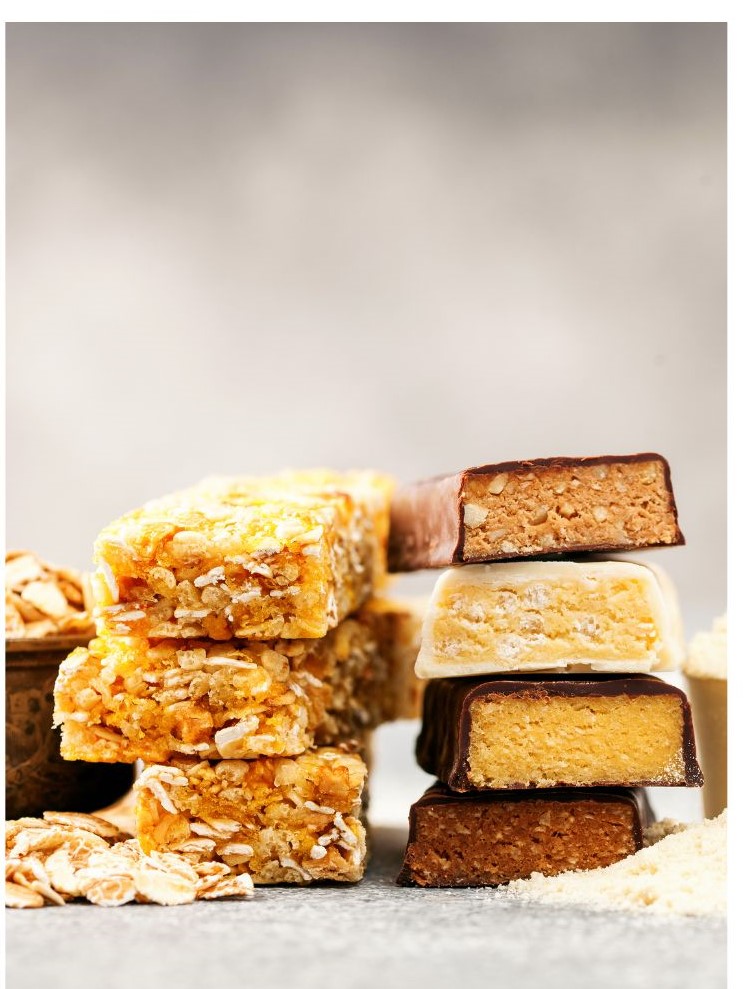10 Summer Foods to Avoid to Reduce Inflammation & Fight Weight Gain
As the warm, sunny days of summer beckon us to enjoy outdoor activities and lighter wardrobes, many people set health goals to feel their best. Summer often prompts a renewed focus on fitness and diet, particularly for those aiming to reduce inflammation and manage weight. While exercise is crucial, what we eat plays an equally significant role in achieving these health goals. Certain foods can exacerbate inflammation and contribute to weight gain, making it essential to identify and avoid them.
Let’s talk about the top 10 foods to steer clear of this summer to help you reduce inflammation and fight weight gain. We’ll also explore healthier alternatives, the importance of hydration, and practical meal planning tips to support your journey toward optimal summer health.
Foods to Avoid for Inflammation
While there’s a prevailing idea that everything in moderation can be a sustainable strategy for health, it doesn’t always work out in our favor. Certain foods that might be fine for others can interact with your chemistry in negative ways that necessitate removing them from your diet.
After seeing thousands of women in my practice over the last 15 years, these are the foods I most often recommend removing if you want to feel leaner, more energetic, less bloated, fewer cravings, and have better gut health.
1. Vegetable Oils
While vegetable oils like soybean, corn, and sunflower oil are common in many kitchens, they are high in omega-6 fatty acids, which can promote inflammation when consumed in excess. Many of these are also made using extraction methods and heavy solvents , which can further contribute to inflammation.
Opt for healthier alternatives like olive oil, avocado oil, or coconut oil instead.
Listen: How to Eat for Your Inflammation Type with Maggie Berghoff

2. Processed Meats
Hot dogs, sausages, deli meats—these convenient options might be tasty and easy to prepare, but they often contain high levels of sodium and unhealthy preservatives that can trigger inflammation. According to a 2015 World Health Organization (WHO) analysis of 10 studies, eating about 2 ounces (or about one serving) of processed meat per day increases the risk of colorectal cancer by about 18%. Processed meat consumption has also been linked to a 6% greater risk of breast cancer, a 21% greater risk of colon cancer, a 22% greater risk of rectal cancer, and a 12% greater risk of lung cancer (1,2,3).
Instead, choose lean cuts of meat and cook them yourself or opt for plant-based protein sources like beans and lentils.
3. Refined Grains
Refined grains like white bread, pasta, and rice have been stripped of their fiber and nutrients during processing, leaving behind a product that’s quickly digested and absorbed by the body. This means a rapid spike in blood sugar, and then insulin. This rapid spike can cause inflammation, weight gain, and other health issues.
When you do eat higher-carbohydrate foods like grains, choose minimally processed options like quinoa, brown rice, or organic whole-wheat pasta.
Read: Losing Weight without Ozempic: How to Reverse Insulin Resistance
4. Artificial Sweeteners
Artificial sweeteners may seem like a good replacement for sugar, but they can disrupt gut bacteria and increase inflammation. Studies have also linked long-term artificial sweetener consumption to weight gain and an increased risk of chronic diseases like type 2 diabetes (4).
Instead, satisfy your sweet tooth with natural, unrefined options like honey or maple syrup in moderation. In the summer, I keep a pitcher of my favorite tea in the fridge that’s naturally sweetened with honey. Get the recipe here!
5. Sugary Condiments
Ketchup, barbecue sauce, and other condiments can quickly add up in sugar content, contributing to inflammation and weight gain. Most people don’t know that, per serving, ketchup has a higher percentage of sugar than ice cream.
Fortunately, there are so many low-sugar condiments in grocery stores now. You can also find recipes for homemade versions of these condiments.
Banish Sugar Cravings: 5-Day Sugar Detox

6. Energy Bars
Energy bars are often super low in protein and are loaded with sugars and artificial ingredients. What’s more, because they’re marketed as “healthy” we’re less likely to check the label to beware of any questionable ingredients or poor nutrient content. Most energy bars won’t actually satisfy your hunger cravings.
For a filling snack, reach for something with protein, fat, and/or fiber like hummus with chopped vegetables or crackers. For more high-protein snacks to support a healthy weight, read this post.
7. Alcohol
While summer is synonymous with socializing and drinks, alcohol can increase inflammation and add empty calories. Truly, I can’t recommend any amount of alcohol consumption, after learning that there’s no “healthy” amount of alcohol—especially for women. However, I know that for many people, completely cutting out alcohol is unrealistic, so if you’re not ready to abstain completely, here’s what you can do:
- Opt for lighter, lower-sugar options mixed with soda water or similar (instead of a store-bought mixer).
- Limit your intake to two drinks, and follow each with a full glass of water.
- Never drink on an empty stomach, and stop drinking at least 2 hours before bedtime.
Try these! Refreshing Green Juice Blends for Hot Summer Days
8. Flavored Coffee Creamer
Most flavored coffee creamers contain partially hydrogenated oils, a source of trans fats, which are highly inflammatory (5). They also often contain high amounts of sugar and artificial flavors. Instead, try unsweetened coconut or almond milk as a dairy-free alternative, or opt for plain heavy cream if you can tolerate dairy.
Non-Dairy Coffee Creamer
- 1/3 cup coconut cream
- 2 cups of non-dairy milk of choice (coconut, cashew, almond, etc.)
- 1/4 cup low-sugar flavor syrup (Monín or Lakanto are popular brands)
Combine all ingredients in a large mason jar and shake or stir until fully combined. Store in an air-tight bottle or jar in the refrigerator.
9. Ultra-Processed Foods
Foods like chips, snacks, and ready meals undergo heavy processing and contain numerous additives that can drive inflammation. Focus on whole, minimally processed foods.
10. Added Sugars
Excess sugar in foods like candies, baked goods, and sodas can lead to increased inflammation and weight gain. Satisfy your sweet tooth with naturally sweet fruits.
Try these: 5 Fresh Summer Desserts That Won’t Wreck Your Hormones
The Impact of Hydration
Water plays a crucial role in reducing inflammation and supporting weight loss. Staying adequately hydrated helps flush toxins from the body, supports digestion, and maintains healthy skin. Aim for at least eight glasses of water a day, and consider adding slices of lemon, cucumber, or mint for a refreshing twist.
Better Nutrition with Functional & Integrative Medicine
Achieving summer health goals is significantly influenced by our dietary choices. By avoiding the foods that contribute to inflammation and weight gain, and instead focusing on wholesome, nutrient-dense alternatives, you can enhance your overall well-being.
Consider working with a functional nutritionist to design a personalized meal plan tailored to your needs and goals. It’s also beneficial to undergo nutrient deficiency testing to ensure your body gets what it needs for optimal health.
Remember, every small change counts. Here’s to a summer of good health, lower inflammation, and achieving those weight management goals!
